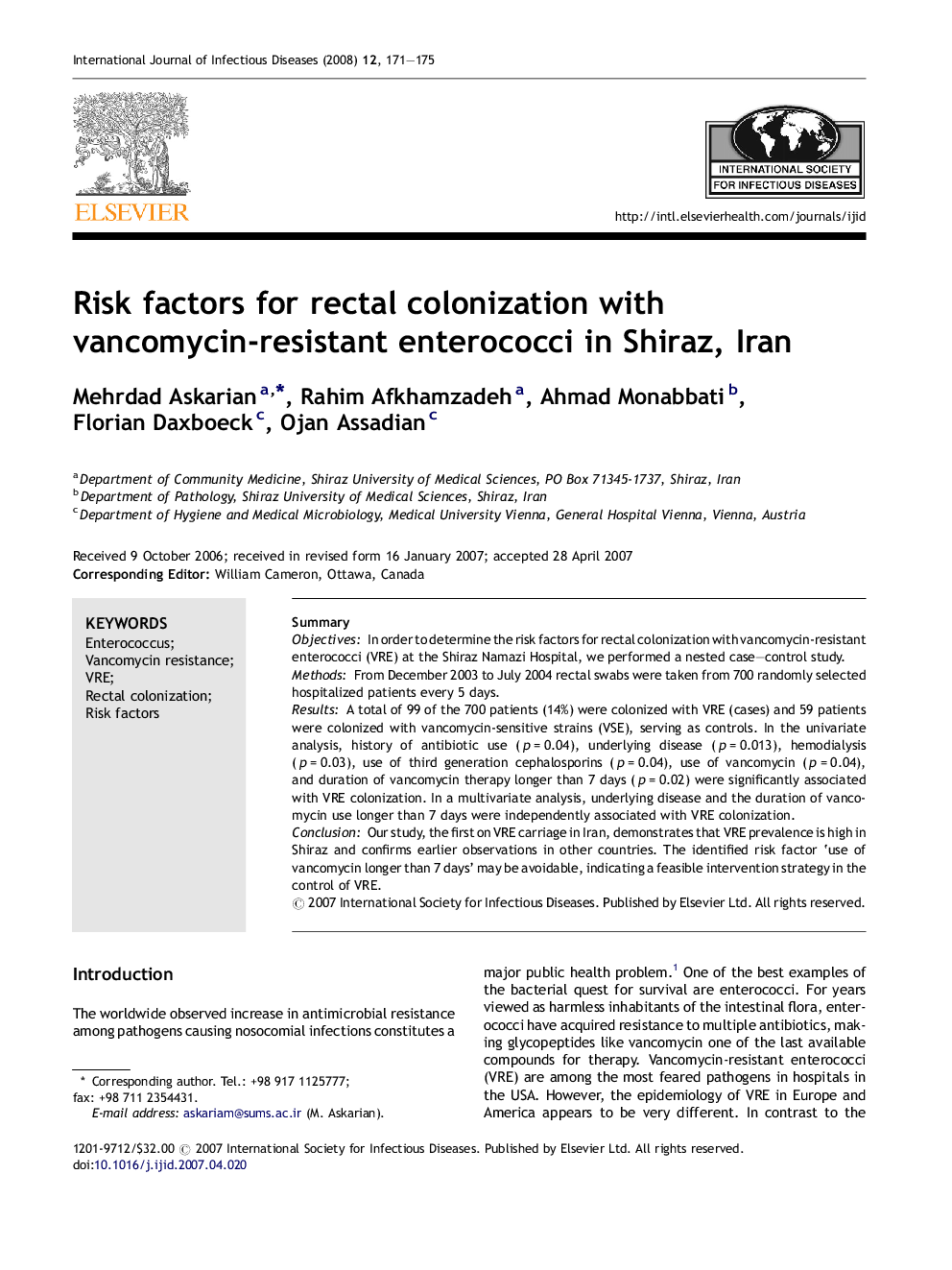| Article ID | Journal | Published Year | Pages | File Type |
|---|---|---|---|---|
| 3363222 | International Journal of Infectious Diseases | 2008 | 5 Pages |
SummaryObjectivesIn order to determine the risk factors for rectal colonization with vancomycin-resistant enterococci (VRE) at the Shiraz Namazi Hospital, we performed a nested case–control study.MethodsFrom December 2003 to July 2004 rectal swabs were taken from 700 randomly selected hospitalized patients every 5 days.ResultsA total of 99 of the 700 patients (14%) were colonized with VRE (cases) and 59 patients were colonized with vancomycin-sensitive strains (VSE), serving as controls. In the univariate analysis, history of antibiotic use (p = 0.04), underlying disease (p = 0.013), hemodialysis (p = 0.03), use of third generation cephalosporins (p = 0.04), use of vancomycin (p = 0.04), and duration of vancomycin therapy longer than 7 days (p = 0.02) were significantly associated with VRE colonization. In a multivariate analysis, underlying disease and the duration of vancomycin use longer than 7 days were independently associated with VRE colonization.ConclusionOur study, the first on VRE carriage in Iran, demonstrates that VRE prevalence is high in Shiraz and confirms earlier observations in other countries. The identified risk factor ‘use of vancomycin longer than 7 days’ may be avoidable, indicating a feasible intervention strategy in the control of VRE.
